
Katie Bentley
The Francis Crick Institute
UK
EMBO Practical Course
Registration is not yet open for this event. If you are interested in receiving more information please register your interest.
This practical course teaches the basics of multicellular modelling to any researcher wishing to enter the field, particularly experimentalists with no prior experience of computational modelling.
It is a “hands-on” course with 60% of the time devoted to students working on laptops performing exercises designed to give a practical familiarity with different types of computational modelling. The course focuses on the dynamics of multicellular systems- from embryos to organoids, covering both the molecular side (how gene regulatory networks perform pattern formation) and also the mechanical side in 2D and 3D (how the movements and activities of many cells together leads to tissue-level morphogenesis and organisation).
A carefully-chosen variety of modelling tools will be introduced, which cover the core approaches of vertex models, finite element models (FEM), and agent-based models (ABM). Attendees will also work through the week in small groups on group projects, which will be presented on the last day to the whole class. Each day will end with a keynote lecture by a prominent researcher in the field, putting the topic of the day into context through an example of relevant biological research.
The week is organised to maximise networking between the students and the teachers and speakers.
This event has been granted the following EMBO sustainability badge:
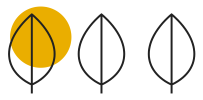

The Francis Crick Institute
UK
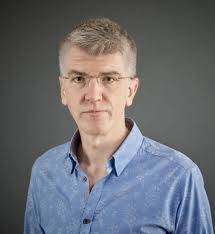
The Francis Crick Institute
UK
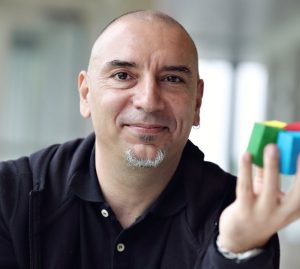
Institute for Integrative Systems Biology (I²SysBio) CSIC-UV
Spain
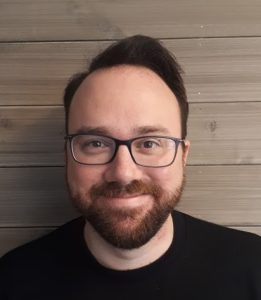
The University of Sheffield
UK
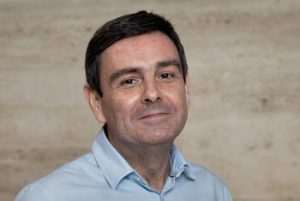
Universitat Pompeu Fabra
Spain
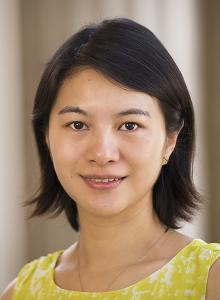
MRC Laboratory for Molecular Cell Biology
UK
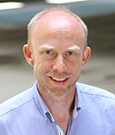
EMBL Barcelona
Spain
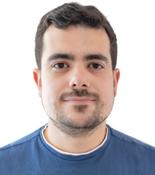
EMBL Barcelona
Spain
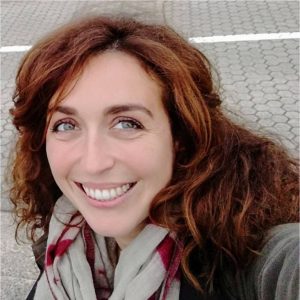
University of Oxford
UK
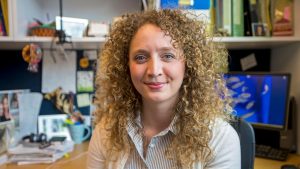
Purdue University
USA

The Francis Crick Institute
UK

EMBL Barcelona
Spain

EMBL Barcelona
Spain
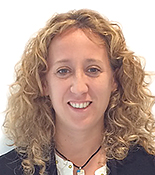
Operations Officer
EMBL Barcelona
Spain
Trainee
EMBL Barcelona
Spain
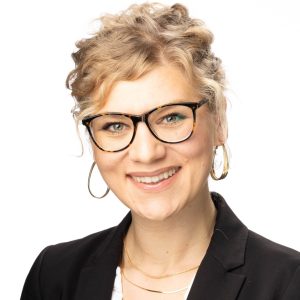
Course and Conference Officer
EMBL Heidelberg
Germany
This programme is subject to changes.
If you are sharing this meeting on social media please use the hashtag #EMBOMulticellModelling and don’t forget to tag @EMBLEvents.
| Time (Barcelona/Europe) | Speaker | Location |
|---|---|---|
| 14:00 – 15:00 | Housenotes Course Overview and Meet & Greet with welcome Drink & nibbles | |
| 15:00 – 15:45 | Bootcamp – Lecture 1 Why modelling biological systems? Basic mathematical concepts that serve to quantify biological processes James Sharpe – EMBL Barcelona, Spain | Seminar Room (Aula de Seminari) |
| 15:45 – 16:45 | Bootcamp – Practical 1 main trainer: James Sharpe – EMBL Barcelona, Spain – Practical exercises on laptops (introduction to programming): define a function, plot it, compute derivatives, explore Hill functions. – Software: python code | Seminar Room (Aula de Seminari) |
| 16:45 – 17:15 | Coffee break | |
| 17:15 – 18:00 | Bootcamp – Lecture 2 Dynamics of gene regulation through ordinary differential equations (ODEs) James Sharpe – EMBL Barcelona, Spain | Seminar Room (Aula de Seminari) |
| 18:00 – 19:00 | Bootcamp – Practical 2 Practical exercises on laptops: – Numerically solve ODEs and plot the solutions – analyse gene regulatory network dynamics – Software: python code. | Seminar Room (Aula de Seminari) |
| 19:00 – 21:00 | Dinner | Offsite |
| Time (Barcelona/Europe) | Speaker | Location |
|---|---|---|
| 08:50 – 09:00 | Daily Testing and Welcome, overview of the day | |
| 09:00 – 09:45 | Bootcamp – Lecture 3 – Qualitative interpretation of the dynamics of GRN – Phase portraits, fixed points and stability Alejandro Torres-Sánchez – EMBL Barcelona, Spain | Seminar Room (Aula de Seminari) |
| 09:45 – 10:45 | Bootcamp – Practical 3 main trainer: Alejandro Torres-Sánchez – EMBL Barcelona, Spain Practical exercises on laptops: – Create phase portraits and detect fixed points in gene regulatory models – Classify their stability – Trajectories in phase space (connection with previous day) – Software: python code. | Seminar Room (Aula de Seminari) |
| 10:45 – 11:15 | Coffee break | |
| 11:15 – 12:00 | Bootcamp – Lecture 4 Bifurcations: how phase portraits can qualitatively change leading to different biological behaviours Alejandro Torres-Sánchez – EMBL Barcelona, Spain | Seminar Room (Aula de Seminari) |
| 12:00 – 13:00 | Bootcamp – Practical 4 main trainer: Alejandro Torres-Sánchez – EMBL Barcelona, Spain Practical exercises on laptops: – saddle-node & pitchfork bifurcations – biological examples – Software: python code. | Seminar Room (Aula de Seminari) |
| 13:00 – 14:00 | Lunch | UPF Canteen |
| 14:00 – 14:45 | Bootcamp – Lecture 5 Modelling oscillations in gene expression. Limit cycles. Hopf bifurcations. Jordi Garcia-Ojalvo – Universitat Pompeu Fabra, Spain | Seminar Room (Aula de Seminari) |
| 14:45 – 15:45 | Bootcamp – Practical 5 main trainer: Jordi Garcia-Ojalvo – Universitat Pompeu Fabra, Spain Practical exercises on laptops: – Dynamics of gene regulation through ordinary differential equations (ODEs) – Software: python code. | Seminar Room (Aula de Seminari) |
| 15:45 – 16:15 | Coffee break | |
| 16:15 – 18:00 | Bootcamp debrief and discussion | Breakout Area |
| 18:00 | Free evening |
| Time (Barcelona/Europe) | Speaker | Location |
|---|---|---|
| 08:50 – 09:00 | Daily Testing and Welcome, overview of the day | |
| 09:00 – 09:45 | Lecture 6: Spatial systems, partial differential equations, discretized continuum modelling of space / diffusion, different types of gradient formation, interpretation of a gradient – solving the French Flag Problem, scale invariance, positional information. James Sharpe – EMBL Barcelona, Spain | Seminar Room (Aula de Seminari) |
| 09:45 – 10:45 | Practical 6 main trainer: James Sharpe – EMBL Barcelona, Spain Practical exercises on laptops: – Dynamics of gene regulation through ordinary differential equations (ODEs) – Software: Limbnet | Seminar Room (Aula de Seminari) |
| 10:45 – 11:15 | Coffee break | |
| 11:15 – 12:00 | Lecture 7: Main classes of Turing pattern, spots versus stripes, boundary conditions, creating a Pearson plot, travelling waves versus stable patterns James Sharpe – EMBL Barcelona, Spain | Seminar Room (Aula de Seminari) |
| 12:00 – 13:00 | Practical 7 main trainer: James Sharpe – EMBL Barcelona, Spain Practical exercises on laptops: – Dynamics of gene regulation through ordinary differential equations (ODEs) – Software: Limbnet | Seminar Room (Aula de Seminari) |
| 13:00 – 14:00 | Lunch | UPF Canteen |
| 14:00 – 14:45 | Lecture 8: Controlling self-organised patterns with positional information), how gradients could alter wavelength in 1D, how 2D gradients could alter the spatial patterns, example of limb development. Limitations of modelling – what it can and cannot do James Sharpe – EMBL Barcelona, Spain | Seminar Room (Aula de Seminari) |
| 14:45 – 15:45 | Practical 8 main trainer: James Sharpe – EMBL Barcelona, Spain Practical exercises on laptops: – Qualitative interpretation of the dynamics of GRN – Phase portraits, fixed points and stability | Seminar Room (Aula de Seminari) |
| 15:45 – 16:15 | Coffee break | |
| 16:15 – 19:00 | Group project session I | Breakout Area |
| 19:00 – 20:00 | Keynote I: Using phase portraits to understand molecular pattern formation Berta Verd – University of Oxford, United Kingdom | Seminar Room (Aula de Seminari) |
| 20:00 – 22:00 | Dinner | Offsite |
| Time (Barcelona/Europe) | Speaker | Location |
|---|---|---|
| 09:00 – 09:45 | Lecture 9 More complex spatial systems, Drosophila gap gene patterns, temporal integration, Sonic hedgehog in the neural tube, multiple gradients Jordi Garcia-Ojalvo – Universitat Pompeu Fabra, Spain | Seminar Room (Aula de Seminari) |
| 09:45 – 10:45 | Practical 9 main trainer: Jordi Garcia-Ojalvo + 4 assistants Practical exercises on laptops on Bifurcations: how phase portraits can qualitatively change leading to different biological behaviours Software: python code. | Seminar Room (Aula de Seminari) |
| 10:45 – 11:15 | Coffee break | |
| 11:15 – 12:00 | Lecture 10 Understanding the sources and impact of noise in biological systems: gene regulatory networks Jordi Garcia-Ojalvo – Universitat Pompeu Fabra, Spain | Seminar Room (Aula de Seminari) |
| 12:00 – 13:00 | Practical 10 main trainer: Jordi Garcia-Ojalvo + 4 assistants Practical exercises on laptops on Modelling oscillations in gene expression. Limit cycles. Hopf bifurcations Software: python code. | Seminar Room (Aula de Seminari) |
| 13:00 – 14:00 | Lunch | UPF Canteen |
| 14:00 – 14:45 | Lecture 11 Understanding the sources and impact of noise in biological systems: spatial patterning Jordi Garcia-Ojalvo – Universitat Pompeu Fabra, Spain | Seminar Room (Aula de Seminari) |
| 14:45 – 15:45 | Practical 11 main trainer: Jordi Garcia-Ojalvo + 4 assistants Practical exercises on laptops on Spatial systems, partial differential equations, discretized continuum modelling of space / diffusion, different types of gradient formation, interpretation of a gradient – solving the French Flag Problem, scale invariance, positional information. Software: python code. | Seminar Room (Aula de Seminari) |
| 15:45 – 16:15 | Coffee break | |
| 16:15 – 19:00 | Group project session II | Breakout Area |
| 19:00 – 20:00 | Keynote II: Embryonic pattern formation James Briscoe – Francis Crick Institute, United Kingdom | Seminar Room (Aula de Seminari) |
| 20:00 | Free evening |
| Time (Barcelona/Europe) | Speaker | Location |
|---|---|---|
| 09:00 – 09:45 | Lecture 12 Basics of agent based modelling (ABM), different types of agent interaction, emergent behaviour in flocking. The simplifying assumptions, and possible pitfalls of the ABM approach Alexandria Volkening – Purdue University, USA | Seminar Room (Aula de Seminari) |
| 09:45 – 10:45 | Practical 12 main trainer: Alexandria Volkening – Purdue University, USA (+ 4 assistants) Practical exercises on laptops on the topics of lecture 13 (listed above) Software: NetLogo (online) | Seminar Room (Aula de Seminari) |
| 10:45 – 11:15 | Coffee break | |
| 11:15 – 12:00 | Lecture 13 Modelling pattern formation in an agent-based model, diffusion, gene regulation networks, and feedback on morphogenesis Katie Bentley – Francis Crick Institute, UK | Seminar Room (Aula de Seminari) |
| 12:00 – 13:00 | Practical 13 main trainer: Katie Bentley – Francis Crick Institute, UK (+ 4 assistants) Practical exercises on laptops on the topics of lecture 14 (listed above) Software: NetLogo (online) | Seminar Room (Aula de Seminari) |
| 13:00 – 14:00 | Lunch | UPF Canteen |
| 14:00 – 14:45 | Lecture 14 Modelling complex tissues – stripe formation in zebrafish Alexandria Volkening – Purdue University, USA | Seminar Room (Aula de Seminari) |
| 14:45 – 15:45 | Practical 14 main trainer: Alexandria Volkening – Purdue University, USA (+ 4 assistants) Practical exercises on laptops on the topics of lecture 15 (listed above) Software: NetLogo (online) | Seminar Room (Aula de Seminari) |
| 15:45 – 16:15 | Coffee break | |
| 16:15 – 18:15 | Flash talks | Breakout Area |
| 18:15 – 19:00 | Networking and Meet the speakers | Breakout Area |
| 19:00 – 20:00 | Keynote III: Using Agent-based Models to explain vasculogenesis Katie Bentley – Francis Crick Institute, UK | Seminar Room (Aula de Seminari) |
| 20:00 – 22:00 | Dinner | Offsite |
| Time (Barcelona/Europe) | Speaker | Location |
|---|---|---|
| 09:00 – 09:45 | Lecture 15 Combining molecules with mechanics, molecular patterning in vertex models, using molecular patterns to control growth/morphogenesis, boundary sharpening, combining signalling and cell behaviour Javier Buceta – I²SysBio, CSIC-UV, Spain | Seminar Room (Aula de Seminari) |
| 09:45 – 10:45 | Practical 15 main trainer: Javier Buceta – I²SysBio, CSIC-UV, Spain (+ 4 assistants) Practical exercises on laptops on the topics of lecture 7 (listed above) Software: Chaste | Seminar Room (Aula de Seminari) |
| 10:45 – 11:15 | Coffee break | |
| 11:15 – 12:00 | Lecture 16 Morphogenesis, anisotropic growth / intercalation / T1,2,3 transitions, planar polarity Javier Buceta – I²SysBio, CSIC-UV, Spain | Seminar Room (Aula de Seminari) |
| 12:00 – 13:00 | Practical 16 main trainer: Javier Buceta – I²SysBio, CSIC-UV, Spain (+ 4 assistants) Practical exercises on laptops on the topics of lecture 8 (listed above) Software: Chaste | Seminar Room (Aula de Seminari) |
| 13:00 – 14:00 | Lunch | UPF Canteen |
| 14:00 – 14:45 | Lecture 17 Combining molecules with mechanics, molecular patterning in vertex models, using molecular patterns to control growth/morphogenesis, boundary sharpening, combining signalling and cell behaviour Javier Buceta – I²SysBio, CSIC-UV, Spain | Seminar Room (Aula de Seminari) |
| 14:45 – 15:45 | Practical 17 main trainer: Javier Buceta – I²SysBio, CSIC-UV, Spain (+ 4 assistants) Practical exercises on laptops on the topics of lecture 9 (listed above) Software: Chaste | Seminar Room (Aula de Seminari) |
| 15:45 – 16:15 | Coffee break | |
| 16:15 – 19:00 | Group project session III | Breakout Area |
| 19:00 – 20:00 | Keynote IV: Vertex modelling to explain epithelial development Alex Fletcher – University of Sheffield, UK | Seminar Room (Aula de Seminari) |
| 20:00 | Free evening |
| Time (Barcelona/Europe) | Speaker | Location |
|---|---|---|
| 09:00 – 09:45 | Lecture 18 The basics and maths of continuum mechanics, force vectors and stress tensors etc. linear elasticity and the stokes equations, basic example of non-uniform growth Alejandro Torres Sanchez – EMBL Barcelona, Spain | Seminar Room (Aula de Seminari) |
| 09:45 – 10:45 | Practical 18 main trainer: Alejandro Torres-Sánchez – EMBL Barcelona, Spain Practical exercises on laptops on the topics of lecture 10 (listed above) Software: hiperlife. | Seminar Room (Aula de Seminari) |
| 10:45 – 11:15 | Coffee break | |
| 11:15 – 12:00 | Lecture 19 Defining tissue geometries, manual creation of geometries / meshes, segmentation of tissue geometry from image data, triangulation / tetrahedralization, solving basic equations Alejandro Torres Sanchez – EMBL Barcelona, Spain | Seminar Room (Aula de Seminari) |
| 12:00 – 13:00 | Practical 19 main trainer: Alejandro Torres-Sánchez – EMBL Barcelona, Spain Practical exercises on laptops on the topics of lecture 11 (listed above) Software: hiperlife | Seminar Room (Aula de Seminari) |
| 13:00 – 14:00 | Lunch | UPF Canteen |
| 14:00 – 14:45 | Lecture 20 Combining molecules with mechanics, molecular diffusion in FEM, simple example of feedback between molecular gradient and morphogenesis Alejandro Torres Sanchez – EMBL Barcelona, Spain | Seminar Room (Aula de Seminari) |
| 14:45 – 15:45 | Practical 20 main trainer: Alejandro Torres-Sánchez – EMBL Barcelona, Spain Practical exercises on laptops on the topics of lecture 12 (listed above) Software: hiperlife | Seminar Room (Aula de Seminari) |
| 15:45 – 16:15 | Coffee break | |
| 16:15 – 17:15 | Keynote V: Using FEM to model how non-uniform proliferation rates lead to controlled buckling and bending of wing disc epithelium Yanlan Mao – University College London, UK | Seminar Room (Aula de Seminari) |
| 17:15 – 18:45 | Group project presentations | Seminar Room (Aula de Seminari) |
| 18:45 – 19:45 | Wrap up discussion and course debrief | |
| 19:45 – 21:45 | Dinner | Offsite |
The course is limited to 20 participants. For selection purposes, please note that your application will not be considered without a letter of motivation.
Registration fees include admission, course materials, COVID-19 safety measures, meals and coffee breaks. This EMBO course includes accommodation and transportation to and from the hotel to the venue.
| Academia | €550 |
| PhD Student | €550 |
| Industry | €1100 |
NO visa support letters will be issued until payment of the registration fee is confirmed.
The registration fee should be paid only after acceptance to the course. The results will be announced approximately 2-3 weeks after the application deadline.
After you have logged in and successfully registered, you will receive an email asking you to submit your motivation letter. Click on the link provided and enter your motivation letter in the text box provided. Alternatively you can submit your motivation letter by clicking on the link on the confirmation page directly after registering.
Instructions
Please note:
For detailed instructions, please watch our video on how to submit a course motivation letter.
For further information about registration and motivation letter submission please refer to the FAQ page.
Limited financial assistance is provided by EMBO in the form of both registration fee waivers and travel grants. Availability is limited to participants attending on-site events and will be indicated during the abstract or motivation letter submission process.
Your place in the meeting is only confirmed by paying the registration fee, which is mandatory even when receiving a fee waiver.
The fee waiver will cover the registration sum that you have paid to attend the course or conference.
The travel grant will cover the cost of travel (airfare, train, bus, taxi, accommodation, visa, and/or registration fees*) and is provided up to specified caps which are normally as follows:
– up to €400 for any participant travelling to an EMBO Practical Course or EMBO Workshop.
– up to €1000 for any participant working in Chile, India, Singapore or Taiwan travelling to an EMBO Practical Course or EMBO Workshop.
*Registration fees are only covered for EMBO Practical Courses or EMBO Workshops
The organisers may reduce the grant cap to accommodate more participants. Recipients will be notified of their travel cap amount when they are informed of the outcome of their application. Original receipts must be provided with your signature for all costs incurred within two months of completion of travel. Scanned copies cannot be accepted.
For EMBO Practical Course or EMBO Workshop participants with children, there is the possibility to apply for a childcare grant to offset child care costs incurred by participants or speakers when participating at a course or conference. Eligible costs include fees for a babysitter or child-care facility, travel costs for a caregiver, or travel costs for taking the child to the meeting etc. Please note that priority will be given to early-stage researchers. A maximum amount of 500 EUR can be awarded per participant applying for an EMBO Childcare Grant. In order to apply for this grant for EMBO Workshops, you must be registered by the abstract submission deadline.
Applies to selected courses only. Availability will be indicated during the abstract or motivation letter submission process.
This grant covers costs related to your attendance at the course (registration, travel and accommodation costs). The grant is restricted to PhD students and postdocs who conduct basic biomedical research.
Whether you are eligible to apply for a travel grant, depends on when you received your university entrance qualification (e.g. Abitur, A-Levels, High School Diploma, Final State Examination):
– for PhD and MD students, as well as graduates, the university entrance qualification must not have been obtained more than 11 years ago at the time of the envisaged course
– for postdocs, the university entrance qualification must not have been obtained more than 13 years ago at the time of the envisaged course
You may apply for financial assistance when submitting your motivation letter for courses, and abstract for conferences. In your application, you will be asked to answer questions regarding why your lab cannot fund your attendance and how your attendance will make a difference to your career. Application for financial support will not affect the outcome of your registration application.
For the Boehringer Ingelheim Fonds Travel Grant, there is a pre-application question during the motivation letter submission process, and if selected you will be requested to complete a standard form and documentation consisting of your travel expense estimation.
The scientific organisers will select the recipients of all financial assistance during the motivation letter or abstract selection process. Results will be announced approximately 6-8 weeks before the event start date, however for some events this may be delayed. Selection results do not impact your admission to the meeting. Selection is based on your current work or study location, the reasons for needing financial support and the impact this event will have on your career.
Costs will be reimbursed after the meeting only once a reimbursement form and original receipts (from travel costs) have been received.
See our list of external funding opportunities.
For further information about financial assistance please refer to the FAQ page.
Accommodation has been pre-booked for you at a nearby hotel for the default dates of 14 June to 21 June 2025 (7 nights). Please note that the course registration fee includes coverage of accommodation costs in twin rooms, including breakfast.
The hotel is just a few minutes from the Collaboratorium space where the practical course will be held
The address of the hotel will be communicated later in the process.
The EMBL eCampus learning platform will be used to collaborate, communicate and network with all of the course participants. All participants will receive information on how to join shortly before the course. We recommend using Chrome, Safari or Mozilla Firefox browsers for eCampus.
Sponsorship opportunities
We offer a variety of event sponsoring possibilities, with the flexibility to select a set sponsorship package or combine individual sponsorship options to suit your event budget. Discounts are available for companies sponsoring multiple events at EMBL Heidelberg. View other events, or contact sponsorship@embl.de for further information.
If you are interested in becoming a media partner of this event, please visit our media partnerships webpage.
EMBL wishes to warn sponsors of EMBL conferences and courses of fraudulent schemes purporting to offer sponsorship opportunities on behalf of EMBL or affiliated with EMBL officials. One current scam campaign of which we are aware is conducted using the name ‘Judy Eastman’ (judy@gopcontact.a2hosted.com) and entails approaches to sponsors offering sponsorship opportunities on EMBL’s behalf. Please be kindly advised that all relevant communication regarding sponsorship of EMBL conferences, symposia and courses is handled by EMBL directly and is sent from an official EMBL account. EMBL does not work with any external providers on sponsorship acquisition.
Please also note that:
Suspicious communications purportedly from, for or on behalf of EMBL should be reported to EMBL at the following email address sponsorship@embl.de.
Want to let others know you’re attending this event? Take a look at our shareable media and feel free to use them in your social media channels or presentations.

Date: 14 - 20 Jun 2025
Location: EMBL Barcelona
Deadline(s):
Application: Closed
Organisers:
Contact: Julia Patricia Nohle